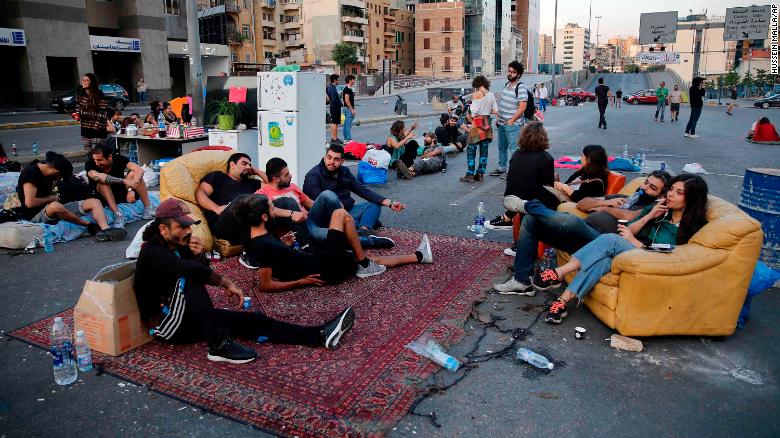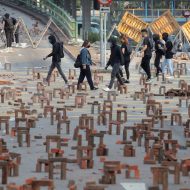
General. “Auxiliary” is a term used to denote people engaged a variety of activities which help the revolutionary insurgents. The term applies to those who are not full-blown insurgents, but who knowingly and willingly participate in the insurgency by engaging in activities such as—political mobilization, recruitment, media, intelligence (including surveillance), logistics, psychological warfare, evasion and escape. Auxiliary forces, therefore, are extensive networks of local sympathizers within the larger revolutionary movement who actively support the insurgency. The auxiliary wing of the insurgency includes the occasional supporter as well as the hard-core leadership of the resistance movement. Auxiliaries may be organized in groups or operate as individuals. There is considerable overlap between auxiliary and insurgent roles in the early stages of an insurgency; as the struggle intensifies, the distinction between the two roles becomes more defined.
Characteristics. Auxiliary forces are characterized by their location and method of operation.
- Location. Unlike full-time insurgents, the auxiliaries are not expected to move from place to place to conduct operations. The fact that the auxiliary forces are local and static is highly desirable in that this provides support for the highly mobile insurgent forces.
- Method of Operation. Auxiliary units derive their protection in two principal ways—a compartmented structure and operating undercover.
(a) Compartmentalization. Information concerning an insurgent operation is limited to persons who need to know it in order to perform tasks necessary for the operation. Thus, auxiliary units do not know each other as such, unless it is necessary for carrying out an operation.
(b) Undercover. While police and counter-insurgency activities often force the insurgents to move temporarily away from given areas, the auxiliaries survive by remaining in place and conducting their regular activities so as to avoid detection. Individual auxiliary members carry on their normal, day-to-day routine, while secretly carrying out many necessary facets of the insurgency.
Support Activities.
- Political Mobilization and Recruitment. Auxiliaries engage in political work in order to mobilize people to support and join the insurgent cause. This is their most important support activity. Active participation from a section of poor and working people in a given area, and neutral or passive support from most people in that area, is essential for the long term success of a revolutionary war.
- Media. Closely tied up with their mobilization and recruitment work, auxiliaries produce and distribute insurgent media—flyers, posters, pamphlets, newsletters, videos, art, etc. that supports and defends the insurgent cause. Auxiliaries carefully circulate this media in neighborhoods, workplaces, prisons, protests, public meetings, on the internet, etc.
- Intelligence. Auxiliaries provide direct intelligence support to the insurgents. Intensive information gathering activities are conducted to support current and future insurgent operations. Chief among these are target acquisition and damage assessment. Target acquisition is usually limited to vulnerable targets of strategic importance. Damage assessment is undertaken in order to report on the physical and social effects of insurgent actions.
- Surveillance and Warning. As a crucial part of their intelligence operations, auxiliaries also provide a surveillance and warning system for insurgent forces. Because of their lack of direct involvement in insurgent operations, auxiliaries are in a better position to keep enemy forces under surveillance and warn the insurgents of enemy moves.
- Logistics. Auxiliaries support the insurgency in all phases of logistical operations. Auxiliaries often collect food, masks, gloves, fuel, lighters, medicine, and other supplies and equipment for the insurgents; they transport the supplies and equipment; establish and secure caches of supplies and equipment; provide temporary housing for the insurgents; provide medical supplies and arrange for trusted doctors and other medical personnel. The extent of logistical support furnished by the auxiliary forces depends upon the available resources, their degree of connections, and enemy activities.
- Deception Operations. Auxiliaries can distract the enemy and provide security for the insurgents by spreading false information in conjunction with insurgent missions. This tactic is undertaken in order to deceive and mislead the enemy as to insurgent intentions, capabilities, and location. The spreading of misinformation usually involves little risk, is very difficult to control, and can result in a tremendous waste of time for the enemy.
- Evasion and Escape. Because they are embedded within everyday environments and activities, auxiliaries are ideally suited for the support of evasion and escape mechanisms. Their close contact with the insurgency allows them to assist insurgents who are evading the enemy.
- Other activities. Auxiliaries may be called upon to perform a number of other activities to support insurgent operations. Some of these are—
(a) Operation of messenger systems between widely dispersed insurgents.
(b) Furnishing art and reading materials to insurgent units.
(c) Under extreme circumstances, they are called upon to conduct active insurgent operations in the their areas of responsibility.
